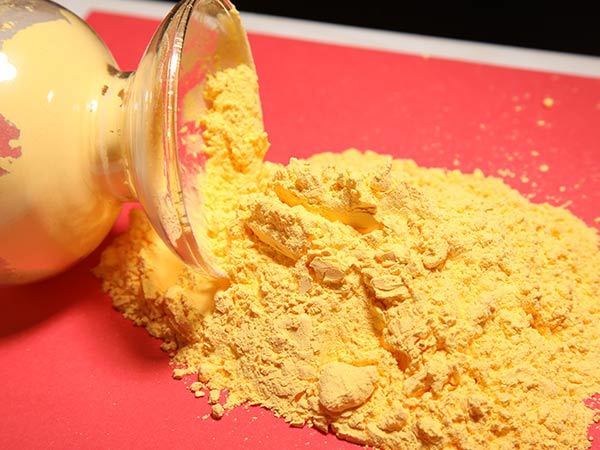language
English
العربية
বাংলাদেশ
Български
Hrvatski
Česky
Dansk
Nederland
 Esperanto
Esperanto
Slovenski
Filipino
Suomi
Français
Maori
 Shqiptare
Shqiptare
Georgian
 Euskara
Euskara
Deutsch
Ελλάδα
ישראל
इंडिया
Magyarország
Ísland
Indonesia
Irlanda
Italia
日本語
Sovensko
Հայաստան
한국
Kyrgyz
ປະເທດລາວ
 Zulu
Zulu
Latvian
Lithuanian
Luxembourgish
 Latinus
Latinus
Macedonian
Малайская
Maltese
Монгол улс
 Cymraeg
Cymraeg
ဗမာ
 தமிழ்
தமிழ்
नेपाल
Norge
ایران
Polska
Portugal
România
Российская
Србија
 Slovak
Slovak
Србија
 Slovak
Slovak
Bosanski
Slovenian
Беларус
España
Sverige
Точик
ประเทศไทย
Türk
Azərbaycan
Uzbek
 Afrikaans
Afrikaans
Việt Nam
Understanding NC Foaming Agents for WPC Flooring: A Comprehensive Guide
Release time: 2025-01-27
In the realm of chemical additives, NC foaming agents play a pivotal role, especially in the manufacturing of Wood-Plastic Composites (WPC) flooring. These agents are essential for creating lightweight, durable, and aesthetically pleasing products that meet the increasing demands for sustainable building materials.
NC, or nitrogen-containing, foaming agents work by generating gas during the processing of polymers, leading to the formation of a cellular structure within the WPC material. This process not only reduces the overall weight of the flooring but also enhances its thermal insulation properties. The incorporation of foaming agents results in a product that is not only easier to handle and install but also more energy-efficient, contributing to lower heating and cooling costs in buildings.
One of the primary benefits of using NC foaming agents in WPC flooring is their ability to improve the mechanical properties of the final product. The foaming process produces a matrix that provides structural integrity while allowing for flexibility. This characteristic makes the flooring resistant to cracking and warping, which are common issues in traditional wood flooring. Additionally, the cellular structure created by the foaming process can improve sound absorption, making WPC flooring a quieter option for residential and commercial spaces.
Another significant advantage of NC foaming agents is their compatibility with various polymer matrices typically used in WPCs, such as polyethylene (PE) and polypropylene (PP). This versatility allows manufacturers to tailor the properties of their flooring products, adjusting factors such as density, stiffness, and thermal stability to meet specific performance requirements. As sustainability becomes a more critical concern in the building materials industry, NC foaming agents also align with eco-friendly practices, enabling the use of recycled materials in WPC production.
Moreover, using NC foaming agents can lead to cost savings in the manufacturing process. By reducing the amount of raw materials needed and minimizing energy consumption during production, manufacturers can achieve a more efficient operation while maintaining product quality. This efficiency is particularly valuable in a competitive market where cost-effectiveness is crucial.
In conclusion, NC foaming agents are vital in the production of WPC flooring, providing numerous benefits that enhance product performance and sustainability. Their ability to create a lightweight, durable, and efficient flooring solution makes them an indispensable tool for manufacturers aiming to meet the evolving demands of the market. Understanding the functions and advantages of these agents can empower industry professionals to innovate and optimize their product offerings, ultimately leading to greater customer satisfaction and success in the marketplace.
NC, or nitrogen-containing, foaming agents work by generating gas during the processing of polymers, leading to the formation of a cellular structure within the WPC material. This process not only reduces the overall weight of the flooring but also enhances its thermal insulation properties. The incorporation of foaming agents results in a product that is not only easier to handle and install but also more energy-efficient, contributing to lower heating and cooling costs in buildings.
One of the primary benefits of using NC foaming agents in WPC flooring is their ability to improve the mechanical properties of the final product. The foaming process produces a matrix that provides structural integrity while allowing for flexibility. This characteristic makes the flooring resistant to cracking and warping, which are common issues in traditional wood flooring. Additionally, the cellular structure created by the foaming process can improve sound absorption, making WPC flooring a quieter option for residential and commercial spaces.
Another significant advantage of NC foaming agents is their compatibility with various polymer matrices typically used in WPCs, such as polyethylene (PE) and polypropylene (PP). This versatility allows manufacturers to tailor the properties of their flooring products, adjusting factors such as density, stiffness, and thermal stability to meet specific performance requirements. As sustainability becomes a more critical concern in the building materials industry, NC foaming agents also align with eco-friendly practices, enabling the use of recycled materials in WPC production.
Moreover, using NC foaming agents can lead to cost savings in the manufacturing process. By reducing the amount of raw materials needed and minimizing energy consumption during production, manufacturers can achieve a more efficient operation while maintaining product quality. This efficiency is particularly valuable in a competitive market where cost-effectiveness is crucial.
In conclusion, NC foaming agents are vital in the production of WPC flooring, providing numerous benefits that enhance product performance and sustainability. Their ability to create a lightweight, durable, and efficient flooring solution makes them an indispensable tool for manufacturers aiming to meet the evolving demands of the market. Understanding the functions and advantages of these agents can empower industry professionals to innovate and optimize their product offerings, ultimately leading to greater customer satisfaction and success in the marketplace.
 sales@feihengchem.com
sales@feihengchem.com
 +8615665855931
+8615665855931 中文
中文 English
English España
España











